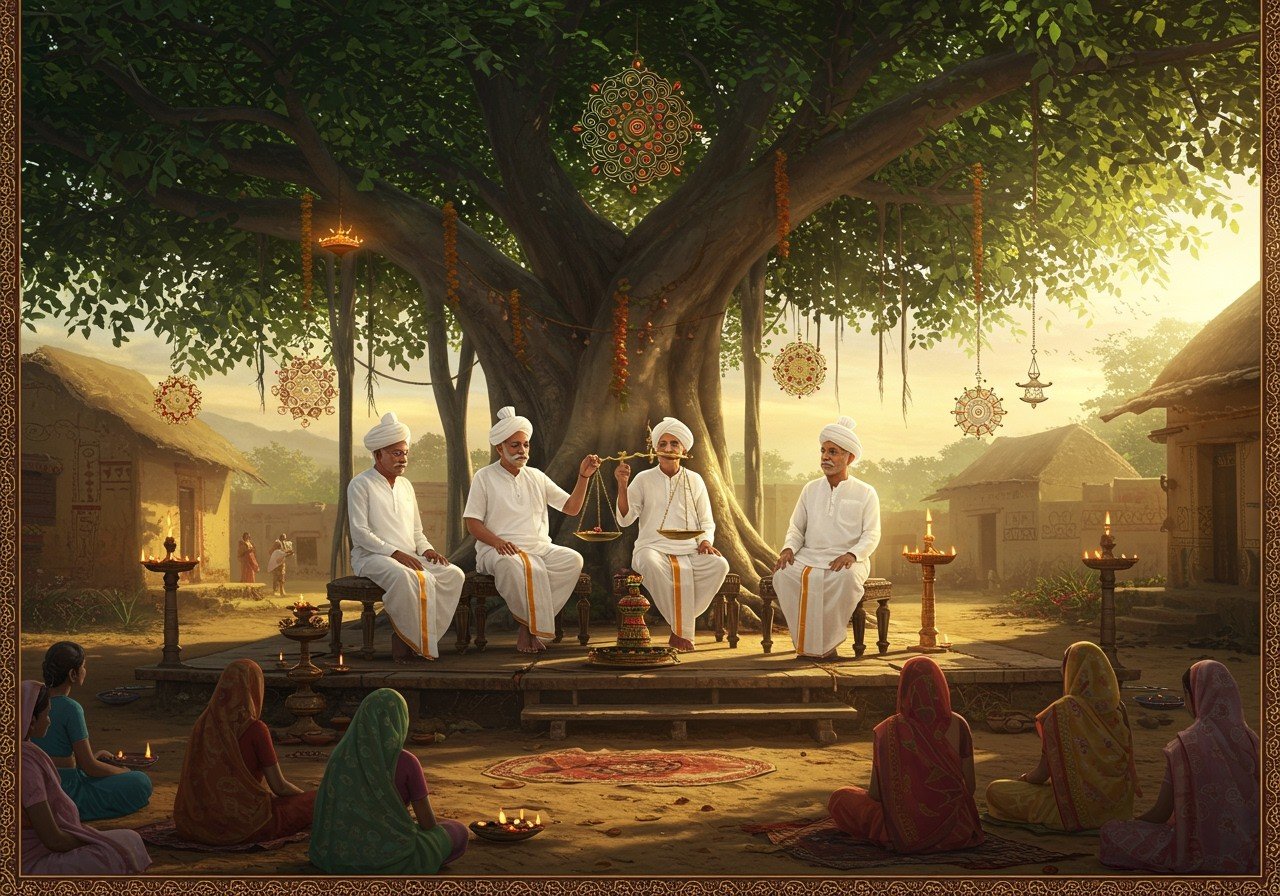
The Nyaya Panchayat stands as a testament to India’s commitment to tradition and justice. Rooted deeply in cultural values, these village courts have served as a beacon of justice for countless rural communities. With the introduction of the Gram Nyayalayas Act of 2008, the reach and accessibility of justice in rural India received a significant boost.
What Makes Gram Nyayalayas Unique?
Gram Nyayalayas are designed to bring justice closer to the people. Their primary goal is to provide affordable and speedy justice, right at the villagers’ doorstep. The State Government, in collaboration with the High Court, appoints a Nyayadhikari, who serves as the presiding officer. This person wields the same authority as a Judicial Magistrate of the First Class.
These courts typically find their place at the headquarters of a Panchayat or a group of Panchayats. Uniquely, they can also function as mobile courts, reaching even the remotest corners within their jurisdiction. This flexibility ensures that justice is not just accessible but also convenient.
Jurisdiction and Procedures
Gram Nyayalayas hold both civil and criminal jurisdiction. They address offenses specified in the First and Second Schedules of the Gram Nyayalayas Act. While they follow a summary procedure for criminal trials, their focus remains on conciliation, guided by principles of natural justice rather than the rigid Indian Evidence Act of 1872. This approach emphasizes fairness and equity in dispute resolution.
Appeals from these courts are straightforward. Criminal case appeals go to the Court of Session, and civil case appeals head to the District Court. Importantly, these appeals are typically resolved within six months, ensuring quick resolutions and minimizing delays in the justice process.
Challenges in Implementation
Despite the noble intentions behind the Gram Nyayalayas Act, its implementation has faced hurdles. Financial constraints and resistance from various stakeholders have slowed progress. While the Act aimed to establish 5,000 village courts, only 257 were operational across ten states as of January 2024. This shortfall highlights the gap between aspiration and reality in expanding access to justice in rural areas.
The reluctance of lawyers, police, and government officials further complicates matters. However, the fact that 476 courts have been notified by 15 states and Union Territories offers a glimmer of hope, marking a slow yet steady journey toward wider implementation.
A Harmonious Blend: Nyaya Panchayat and Gram Nyayalayas
The coexistence of traditional Nyaya Panchayats and modern Gram Nyayalayas highlights India’s dedication to preserving tradition while embracing progress. These systems offer culturally authentic justice rooted in local customs, while providing a structured legal framework for rural communities. This blend ensures that justice is both accessible and culturally relevant.
As India continues to navigate the challenges of rural justice delivery, these village courts stand as pillars of hope and harmony. They embody the spirit of community-driven justice, fostering an environment where tradition and modernity work hand in hand for the betterment of society. This synergy between old and new promises a more just and equitable future for rural India.
How Poojn.in Supports Traditional Justice Practices
Poojn.in recognizes the sacred nature of traditional justice systems like Nyaya Panchayat. While the Nyaya Panchayat proceedings often involve ritual elements, Poojn.in provides pure and authentic puja items that may be used in these traditional gatherings. Our Mangalam camphor tablets are particularly suitable for such occasions, as they are made from 100% pure pine-derived camphor without any harmful chemicals. These tablets can be used during the opening and closing ceremonies of Nyaya Panchayat meetings, where lighting of camphor is common to invoke divine presence and blessing.
The camphor’s complete burning without residue symbolizes the pursuit of pure justice and truth in Nyaya Panchayat proceedings. Our Mangalam camphor tablets are available in convenient packs suitable for community gatherings and can be ordered online for delivery across India. The smoke-reduced formula ensures minimal disruption during important proceedings while maintaining the sanctity of traditional practices.
Shop Mangalam Camphor Tablets at Poojn.in
Note: For specific ritual requirements of Nyaya Panchayat in your region, please consult with local traditional authorities.
What is a Nyaya Panchayat?
A Nyaya Panchayat is a traditional, local village court in India. It’s a vital part of the grassroots justice system, resolving minor disputes and offenses within the community. Its core aim is to offer quick and affordable justice, making it especially important in rural areas.
What are the functions of Nyaya Panchayats?
Nyaya Panchayats handle a range of minor civil and criminal cases, focusing on community-specific issues like property disagreements, family disputes, and other local conflicts. They prioritize reconciliation and maintaining peace within the village, fostering a harmonious environment.
Why are Nyaya Panchayats important?
Nyaya Panchayats play a crucial role in delivering accessible and affordable justice to rural populations, often marginalized from the formal legal system. They significantly reduce the burden on higher courts, offering culturally relevant solutions acceptable to the local community.
How do Nyaya Panchayats differ from regular courts?
Unlike formal courts, Nyaya Panchayats adopt a less formal, more accessible approach. They prioritize mediation and consensus over strict adherence to complex legal procedures. This makes justice less intimidating and faster for villagers.
Who are the members of a Nyaya Panchayat?
The members, known as Panchs, are respected figures within the village chosen for their wisdom, fairness, and understanding of local traditions. They are either elected by the community or appointed based on these qualities, ensuring local representation.
Can Nyaya Panchayats handle serious criminal cases?
No, Nyaya Panchayats focus solely on minor offenses and civil disputes. Serious criminal cases are referred to the formal judicial system with its more comprehensive legal procedures and enforcement mechanisms.
How are decisions made in Nyaya Panchayats?
Decisions are reached through open discussion and consensus among the Panchs. The goal is a solution that respects all parties involved, promoting lasting harmony and understanding within the community.
Are Nyaya Panchayat decisions legally binding?
While respected within the village, Nyaya Panchayat decisions may not always carry the same legal weight as formal court judgments. Dissatisfied parties sometimes have the option to appeal to higher courts within the formal judicial system.
Conclusion: Embracing Tradition and Progress
The Nyaya Panchayat and Gram Nyayalayas together represent a unique blend of tradition and modern legal practices in India. They honor the past while embracing the future, ensuring that rural communities have access to the justice they deserve. While challenges persist, the gradual expansion of these village courts demonstrates a commitment to bringing justice to every corner of the nation.
By combining traditional methods with contemporary legal frameworks, India is building a system where every citizen, regardless of location, can experience fairness and equality. As these systems continue to develop, they symbolize hope, unity, and the power of community-based solutions in upholding justice.


